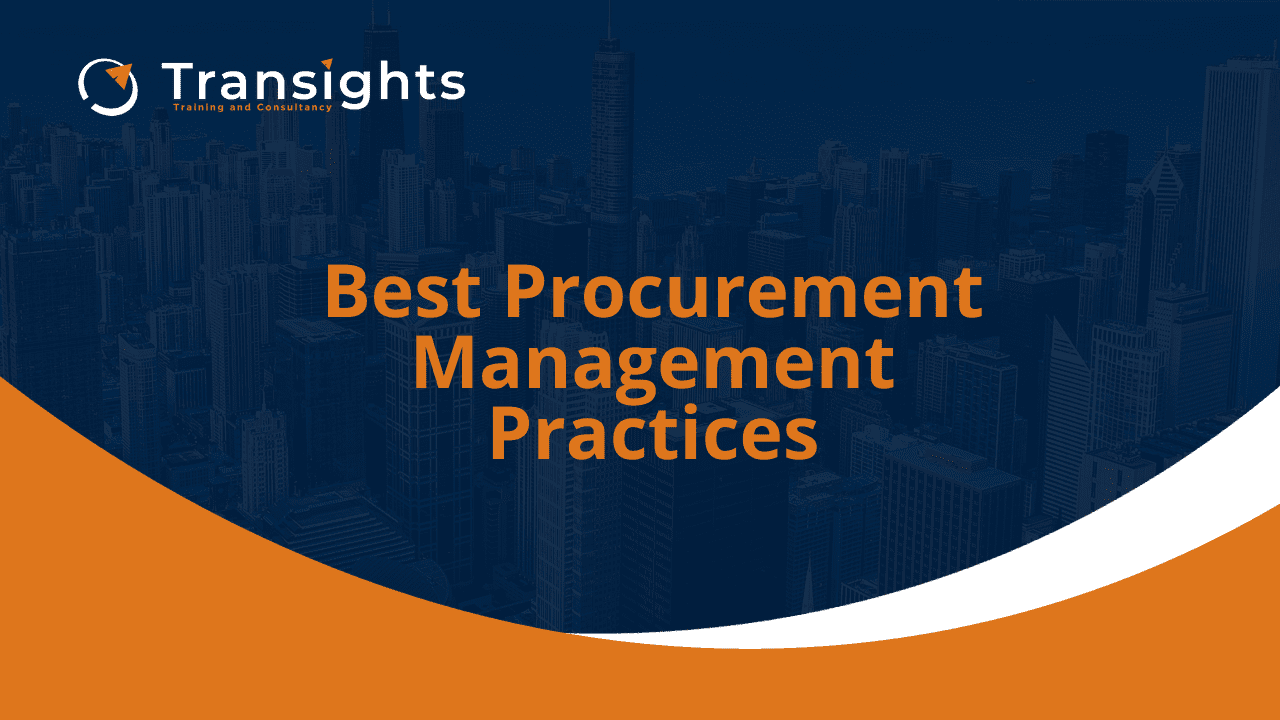
Procurement management stands as the cornerstone of efficient operations for businesses across industries. The process of acquiring goods and services at the right cost, quality, and time directly impacts a company's bottom line and its ability to deliver value to customers. In this article, we delve into the best procurement management practices that can empower organizations to streamline their purchasing processes, optimize costs, and enhance overall operational effectiveness.
Strategic Planning and Alignment:
Strategic Planning and Alignment:
Align procurement strategies with overarching business objectives. Understanding the company's needs and goals allows for better planning, budgeting, and sourcing decisions that align with long-term objectives.
Supplier Relationship Management:
Supplier Relationship Management:
Nurturing strong relationships with suppliers is crucial. Regular communication, performance evaluations, and collaboration foster a sense of partnership that often leads to better pricing, reliability, and innovation.
Risk Assessment and Management:
Risk Assessment and Management:
Identifying potential risks within the supply chain is vital. Whether they are related to supply shortages, geopolitical issues, or quality concerns, having mitigation strategies in place ensures continuity in operations.
Embrace Technology and Automation:
Embrace Technology and Automation:
Leveraging technology such as procurement software, e-procurement platforms, and automation tools streamlines processes, reduces manual errors, and enhances efficiency in managing purchase orders, invoices, and vendor management.
Supplier Diversity and Sustainability:
Supplier Diversity and Sustainability:
Encouraging supplier diversity brings innovation and resilience to the supply chain. Embracing sustainable procurement practices not only aligns with corporate social responsibility but also reduces environmental impact and enhances brand reputation.
Cost Management and Negotiation Skills:
Cost Management and Negotiation Skills:
Effective negotiation skills are essential for securing favorable terms and pricing. Additionally, having a comprehensive understanding of total cost of ownership (TCO) helps in making informed decisions beyond initial purchase prices.
Clear and Transparent Processes:
Clear and Transparent Processes:
Having well-defined and transparent procurement processes ensures consistency and compliance. Clear documentation of policies, procedures, and guidelines facilitates smoother operations and reduces confusion or disputes.
Performance Monitoring and Evaluation:
Performance Monitoring and Evaluation:
Regularly assessing supplier performance against predefined metrics enables the identification of strengths, weaknesses, and areas for improvement. This process helps in making informed decisions regarding supplier relationships.
Continuous Improvement and Adaptability:
Continuous Improvement and Adaptability:
Foster a culture of continuous improvement within the procurement team. Encourage feedback, stay updated with industry trends, and be adaptable to changes in the market or supply chain dynamics.
Compliance and Ethical Practices:
Compliance and Ethical Practices:
Adherence to legal regulations, industry standards, and ethical practices is non-negotiable. Compliance ensures that procurement activities are conducted ethically and in accordance with established norms.
Conclusion:
Conclusion:
In an era where procurement directly influences a company’s competitiveness and financial health, adopting best practices is imperative. Strategic planning, supplier relationships, technological integration, and a focus on sustainability and compliance collectively contribute to efficient procurement management. By implementing these practices, organizations can optimize their procurement processes, mitigate risks, and pave the way for sustainable growth and success in a dynamic business landscape.

